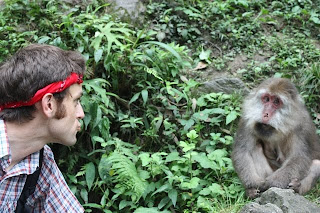The social psychology of positive psychology... Is it possible to socially engineer a happier society? This book explores a few cases studies of the world's "happiest places" - Cities and towns in Costa Rica, Singapore, Mexico, Denmark, and San Luis Obispo CA to explore what the people and their local governments are doing right to encourage and maintain the greatest happiness and life satisfaction for their people. An interesting addition to the positive psych canon, and I'll likely reference it a lot in my next writing project.
Life- Keith Richards
After coming off Dylan's indulgent "Chronicles vol. 1" I was a little doubtful, but then found myself extremely engaged and fascinated- not just with the life of vice, but the music, the historical aspects of the book. Learning about post-war England and then the slowly changing world in the 1960s, understanding the roots of rock and roll in African American Blues and other historically black traditions that were co-opted, and then just hearing the good old gossip and degeneracy of Keith and The Stones was a real kick. Fun, fascinating stuff.
Let The Great World Spin - Collum McAnn
Life- Keith Richards
After coming off Dylan's indulgent "Chronicles vol. 1" I was a little doubtful, but then found myself extremely engaged and fascinated- not just with the life of vice, but the music, the historical aspects of the book. Learning about post-war England and then the slowly changing world in the 1960s, understanding the roots of rock and roll in African American Blues and other historically black traditions that were co-opted, and then just hearing the good old gossip and degeneracy of Keith and The Stones was a real kick. Fun, fascinating stuff.
Let The Great World Spin - Collum McAnn
Straight up, this is the only book I can think of where each chapter was worse than the preceding one. Starts out incredibly promising with great characters and the plot and writing go downhill from there. One of those "everything is interconnected" multigenerational stories (that are usually in the form of Hollywood movies about LA, cf: Short Cuts, Magnolia, Crash), I so wanted to like this book, especially after the lead-off, and then just found myself struggling to get to the end. I see why people like it, but I'd be happy to debate anyone on its larger merits.
Spark- John Ratey
John Ratey (Ned Hallowell's old ADD writing partner) on the benefits of exercise for: depression, anxiety, substance abuse, hormonal issues, concentration, and more. Basically takes the reader through the research while offering up case studies and practical how-to's, as well as solid scientific underpinnings to why and how exercise changes the brain. I suppose really all one needs to read is the first chapter which lays it out- its gets a little repetitive, but still, as a mental health practitioner I always appreciate learning of other treatments for mental illness besides drugs and psychotherapy. The most important thing I learned in all the redundancies were that pushing yourself is very important- a few sprints during a cardio workout are important, as well strength training being added in, and exercise that requires brain power and fine motor work (yoga, tennis, etc)...

.jpg)




